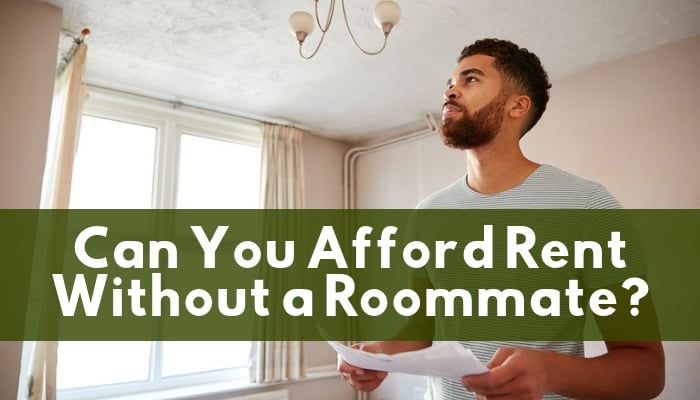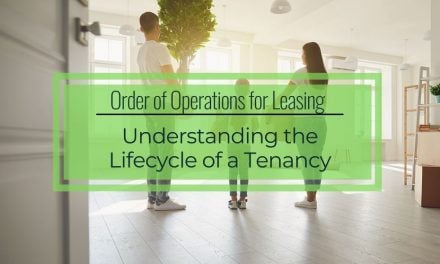
There comes a point in every adult’s life when they realize it’s time to live on their own. First, they probably move into an apartment with a few roommates, but they eventually outgrow that too. Finally, they reach the ultimate destination for renters — living alone.
Maybe you feel like it’s your turn to do that too, but renting solo isn’t always as easy as it is to share an apartment or house with roommates, especially when it comes to finances.
You’ll have to ask yourself some tough questions before you figure out if you can afford to move out of your current living situation and into a place of your own. Here are four of them.
1. Do I Have Savings?
Renting an apartment isn’t just a monthly expense, especially when you first move in. At that time, you’ll have to put down a deposit on your new place, which, on average, equals approximately one month’s rent. You’ll also have to pay a month’s worth of rent, and some landlords require renters to pay for the last month right away as well. A good rule of thumb is to save up three months worth of rent before moving to cover these and any other move-in fees that might crop up.
Depending on the number of belongings you have — and whether the place you’ve chosen comes with furniture — you might also have to dip into your savings to furnish your place when you move in. You can do so on a budget with the help of thrift stores, hand-me-downs and big-box stores, where mass-produced pieces cost less. Make sure your savings will cover your daily necessities as well.
2. What’s My Credit Score?
Another vital element of renting on your own is your credit score. Your landlord will use it to determine if you’re likely to pay your rent on time — a high credit score means you’re more fiscally responsible when it comes to covering your credit card bill, student loan repayments and similar debts. If you have a low score, you might have outstanding bills, or you might have an overdue payment lying around.
In general, you’ll need about a 620 to get the green light on a basic apartment, while nicer properties might require you to have a 740 or higher. If your number is too low, don’t sweat — you can work to improve your credit score over time. You might need to wait before moving in on your own, however, because a lot of it comes down to paying down your debts and making more payments on time to boost your standing.
3. Can I Handle the Monthly Payments?
Even if you have the savings and the credit score to get into the apartment you want, you should still take a critical look at your monthly rental payments. Can you afford them? A typical rule of thumb is to ensure your rent is no more than one-third of your take-home pay.
If you can’t find a place that fits the one-third parameter, you might want to take a step back and reconsider your quest to live without roommates. Splitting the cost makes it all cheaper — it’s why so many cash-strapped college students live with their friends.
It’s not just the rent, after all. You also have to consider utility bills, Internet, and even the cost of stocking your kitchen with the basics. When you have a roommate, these are all costs you can split to reduce your overall cost of living and save more money over time.
If you’re set on living alone, come up with a budget to make sure you won’t be house poor. What other expenses will you have along with your rent? If the budget — including everything from groceries and entertainment to health care and savings — is covered by your paycheck, you’re in business.
4. What Are the Hidden Costs?
Many apartment hunters focus solely on the look and feel of a place. This strategy makes sense in a way — you want to feel happy and cozy in your home, and some spaces won’t feel as welcoming as others. However, you shouldn’t let an aesthetically pleasing option distract you from the hidden costs that will come with some rentals.
As you peruse properties, be sure to take a step back and think about the additional expenses that will come with your rent. Along with utilities, you’ll want to tally how much you’ll have to pay monthly for parking, whether it’s in the building or on the street.
If you don’t have an in-unit washer and dryer, you’ll want to find out how much each load will cost. On top of that, your commute could change — how much will that affect your transportation costs, whether you’ll be paying for more gas or spending more on public transit?
Some apartments will charge you an application fee as well as a fee for any pets who will move in with you. Add these costs up, along with any other expenses you expect to encounter, to make sure a property is within your reach.
Am I Ready to Live on My Own?
If you’re thinking about the above four questions, then the answer to this one has to be “yes.” And with careful, honest consideration of each one, you might just find that you’re both mentally and financially ready to rent without a roommate.






I need a safer place to live, it’s dangerous where I’m living. I’ve almost fallen several times. I would need to be able to meet a roommate, who I can trust. I’m a senior and I would have to have a lower unit, I can do a few stairs, i have 14, very hard to do daily. I have severe health issues. Please help me.
Craigslist is a good place to start if you are looking for a roommate and a new place to live. Good luck!
These are all great points. I was a renter at one time. I was young and did not think some of these things through before I moved out on my own. I definitely had a hard time making ends meet and ended up moving back to my parents for a while. Now that I think back, I kind of wish I stayed home and saved money to buy a place instead.
I feel you, Tara! It’s so hard to balance the desire for independence with the financial realities of living on your own. I hope this article can help other young people really think through their options so they can make the best decisions for themselves!
Nice Article and well said, it’s really help us out to, how to afford without roommates.
Glad you liked it! Thanks for your feedback.
This is really helpful. Thanks!
Thank you Rose – glad you found it helpful.
It really depends on your needs. You may need a bigger space if you work from home so having the peace of being alone in the house is what you should consider.
It has both advantage and disadvantages but if you’re one who likes a quiet space to live in, then not having a roommate is ideal. From where I live, rent is lower when you share it with someone.